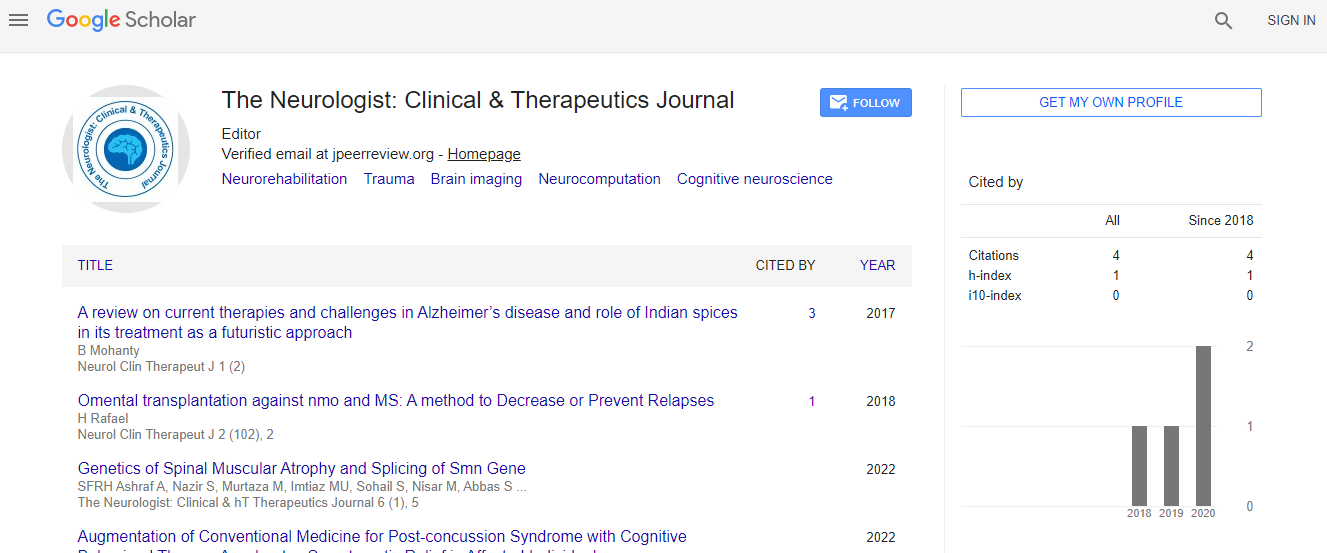Effects of Passive Music Therapy on Cognitive Function, Depression, and Quality of Life in Adults with Vascular Dementia: A Randomized Controlled Trial
*Corresponding Author:
Copyright: © 2020 . This is an open-access article distributed under the terms of the Creative Commons Attribution License, which permits unrestricted use, distribution, and reproduction in any medium, provided the original author and source are credited.
Abstract
The aim of this study was to examine the effects of passive music therapy (PMT) on cognitive function, depression, and quality of life (QoL) in patients with vascular dementia (VaD).
Methods: Adults who met the criteria for vascular dementia (n = 34; mean age = 62.2 years) were randomly allocated to the PMT group (n = 17) or control group (n = 17). PMT was performed under the supervision of a music therapist for 45 min a day, twice a week for 8 consecutive weeks (16 sessions). Outcome measures included cognitive function, depression, and quality of life.
Results: QoL decreased during standard care and increased during music therapy (p<0.01, F= 220.37). Depression increased significantly more often during standard care than during music therapy (p = 0.02). However, total scores on the Mini‐Mental State Examination (MMSE) did not significantly change, but the scores of two subscales, ‘language’ and ‘recall’, improved significantly (p = 0.023).
Conclusions: A well-structured music therapy was associated with positive changes in depression level related to cognitive decline and enhanced quality of life in adults with VaD. To confirm these promising results, further research with a larger sample is needed.

 Spanish
Spanish  Chinese
Chinese  Russian
Russian  German
German  French
French  Japanese
Japanese  Portuguese
Portuguese  Hindi
Hindi 